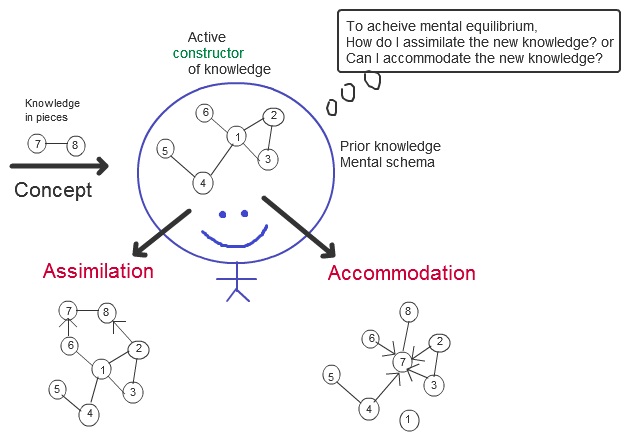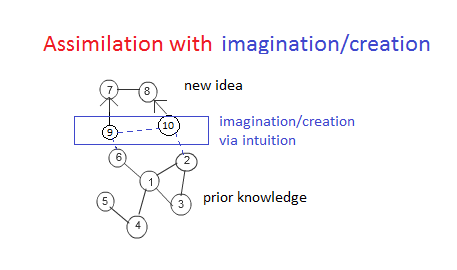Jean Piaget devoted his life work to developmental psychology, researching this missing link between biology and epistemology.
Genetic epistemology is a study of the origins (genesis) of knowledge (epistemology). The discipline was established by Jean Piaget. (zhahn, pee-uh-zhey).
Jean Piaget did not consider himself a psychologist – instead he called his study Genetic Epistemology. Piaget believed that knowledge is a biological function that results from the actions of an individual and is borne out of change and transformation. He also stated that knowledge consists of structures, and comes about by the adaptation of these structures with the environment.
“So my critique on empiricism is that our knowledge is not molded directly by things we observe. We always interpret according to our own structures. On the other hand, why am I not an innatist or an appriorist? Well, look at the history of mathematics. It is a continual construction. It took centuries to construct the negative numbers. It wasn’t until Pythagoras that irrational numbers arrived. (not true. root of 2 can be constructed from x^2 = 2) So mathematical knowledge is constructed, not pre-formed. If this knowledge is pre-formed as Chomsky believes… It would have to exist implicitedly in babies and even in animals. We would have to go back to invertebrates to find the source of mathematics.
If knowledge is not pre-formed in the object or in us, then there is sequential construction. The development of intelligence is a series of construction. This prolongs biological development. The sequential construction consists of hierarchical steps…etc…”
Piaget’s theory of constructivism.
And assimilation with imagination/creation + intuition.
What is a concept? viewing concepts as a mindmap of pieces of information. cf. schema=conception=personal interpretation of concepts.
Concepts as a ‘language’ of a mental visualisation of a network/mindmap of how information is connected.
Would Piaget’s theory of constructivism from prior knowledge supports that Jesus came from God? How else could Jesus have obtain the prior knowledge of his wisdom that was reflected in his sermons and preaching of the gospel?
The construction of your mental schema will become the platform and lens to which you will perceive others or construct further knowledge. Perceiving others would mean the conclusions and decisions that you make as an outflow of reason, based on your prior knowledge, philosophy or beliefs. If your prior knowledge is not centred on Christ, then the product of construction will most likely turn out as a mess. Piaget’s theory supports the importance of foundation as we know that any construction will only be as strong as the foundation that was laid and that foundation would very much determine the construction that follows from and on it. It is truly the construct of your philosophy in mental equilibrium(integrity) that defines who you are. But more fundamentally, we construct our knowledge based on what we love or can relate to. Your philosophy and beliefs will then determine your flow of reason to make conclusions and decisions.
Critique 1: Is the individual always actively constructing knowledge? Is everyone as thoughtful/critical/alert to protect what enters their mind.






Pingback: math intuition vs artistic intuition | rantingmath